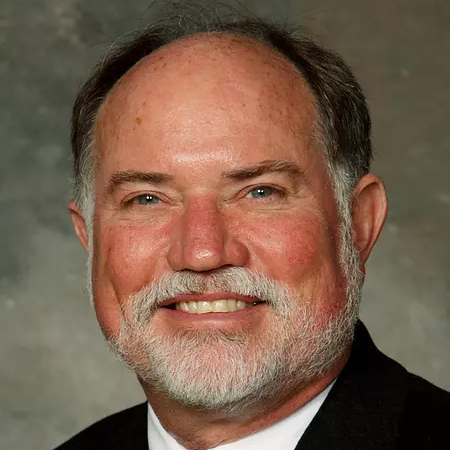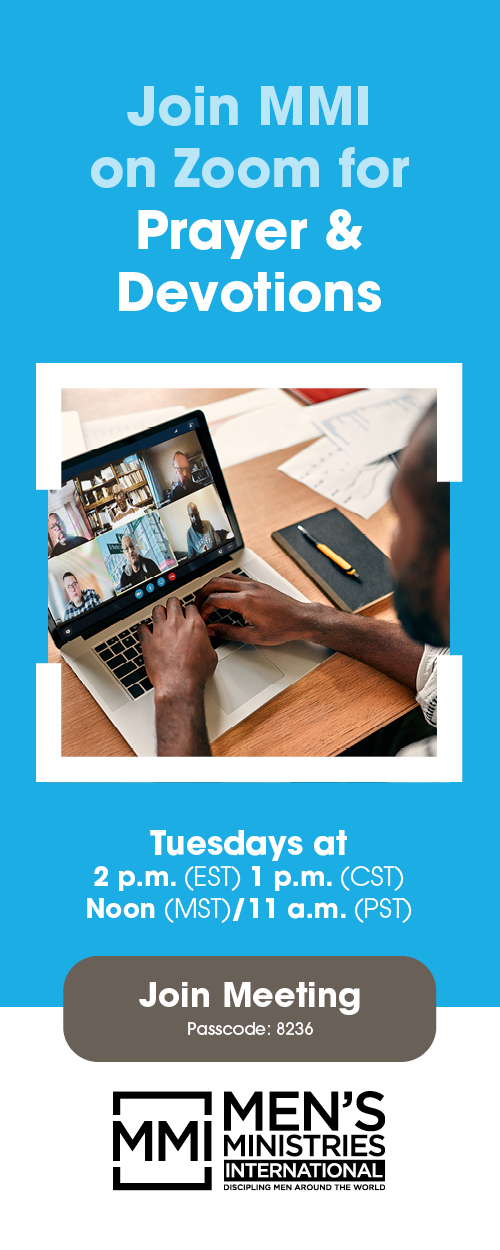
Denny Wayman
Denny Wayman, D.Min., is a member of the Study Commission on Doctrine and the moderator of Free Methodist Conversations. He served 40 years as the lead pastor of the Free Methodist Church of Santa Barbara and 10 years on the superintendent team (eight years as lead superintendent) of the Free Methodist Church in Southern California. He is the author of “Healthy Biblical Communities” and the discipleship trilogy “Discipleship Ecosystem,” “Toxic Discipleship” and “Rootbound.” He is married to Cheryl, a licensed marriage and family therapist.
By Denny Wayman
I heard a sermon in seminary that harmed me. It was not that the speaker said anything unique, but that was, in fact, the source of the problem. He was simply repeating what we had both been taught — not only in our religious upbringing but also in the seminary itself. He warned us against allowing our own thoughts to take over our prayer time with God.
He titled the sermon something like: “Galloping Thoughts.” He told of a childhood experience when he got on a horse. He was not strong enough to rein it in, so it galloped away with him. He then said that can happen to us. We can come to God in prayer, and then our own thoughts — like a headstrong stallion — take off with us, and we leave God behind.
As you can tell, it was an effective image. I remember it decades later. But I primarily remember it because I tried for years to pray in the way that he described. I tried to focus my attention only on God and on His presence. I tried to keep all the thoughts of this world reined in. I tried to enter into silence with silence being my goal. In fact, I tried to be what I would now call empty-headed.
_
“We are so bombarded in this world with the thoughts of others that to just have time alone to think can easily be experienced as sacred.”
_
I understand the intention of my friend and of those who advise us to make the time set aside for prayer focused only on God and not just a time of thinking about random things or daily concerns. We are so bombarded in this world with the thoughts of others that to just have time alone to think can easily be experienced as sacred. I understand that if we are not connecting with God, then we are insulating and isolating ourselves by running away only with ourselves.
But does being empty-headed when we get together with others describe how relationships actually function? Isn’t it the thinking together that defines the very nature of a relationship? Isn’t the breathing in of one another’s presence the very definition of inspiration? Isn’t the fact that new thoughts come into our minds because of our conversation the substance of our friendship and collaboration? Don’t we, in fact, mutually follow the path our thoughts bring to us? Wouldn’t a conscious effort to not think such thoughts derail the journey our interaction created, throwing us from our shared path?
Constant Interaction
I have journeyed many miles with God since my seminary days. I have learned that to be with God is to be in constant interaction with the One who walks and talks with me. I have learned that when I am with God, a new thought is most often His guidance, inspiration, explanation, and deployment. I have learned that when someone comes to mind that this is often a message of pastoral assignment to call them or, usually, to be aware and stop for a conversation when they serendipitously share a grocery store aisle, pass me on the street, or come to the church to pray.
_
“I have learned that fears can be both wisdom and gifts from God as we explore them together.”
_
I have learned that sermon topics, article content, and biblical insight come as a flash of insight, often in fully developed form. (This article came in a time of prayer as a clear assignment from God.) I have learned that the unappeasable conviction of sin and the urgent need for repentance and reconciliation are gifts of the One who sanctifies me. I have learned that fears can be both wisdom and gifts from God as we explore them together.
But these interactions are not different in kind from what I experience with a good friend when we are sharing lunch and our conversations take us down multiple paths into shared insights. The interaction of heart with heart, mind with mind, life with life is the very essence of relationship. It is not that my relationship with God is of a different nature, but rather on a different level. To interact with our Creator and Redeemer, Paraclete and Sanctifier, Father and Divine Author is to raise my thoughts and my life and my ministry to an eternal perspective. So it is not that I shy away from my thoughts in prayer, but embrace them as the “word of the Lord” given to me. I meditate on them as God shapes them, and I put them into action.
Greater Intimacy
I do not speak in tongues, but I understand the impulse for greater intimacy with God. As friendship grows and we increasingly become one in heart and thought, words become increasingly unnecessary. The shared silence speaks volumes in sighs too deep for the limitations of language. Like lovers whose communication has transcended the intrusion of talking, the love shared with God comes in such intimate moments in the “still, small voice” or the “silence that speaks (or thunders).” It is then, at the end and not the beginning of the journey, that we become one with God and all other thoughts converge into this transcendent experience of divine love.
I know, from both my own experience and the promises of Scripture, that I have only begun to experience oneness with God. It is an exhilarating thought and undoubtedly the purpose of heaven to experience the fullness of completely abiding in Him. May it be so.
+

Denny Wayman
Denny Wayman, D.Min., is a member of the Study Commission on Doctrine and the moderator of Free Methodist Conversations. He served 40 years as the lead pastor of the Free Methodist Church of Santa Barbara and 10 years on the superintendent team (eight years as lead superintendent) of the Free Methodist Church in Southern California. He is the author of “Healthy Biblical Communities” and the discipleship trilogy “Discipleship Ecosystem,” “Toxic Discipleship” and “Rootbound.” He is married to Cheryl, a licensed marriage and family therapist.









